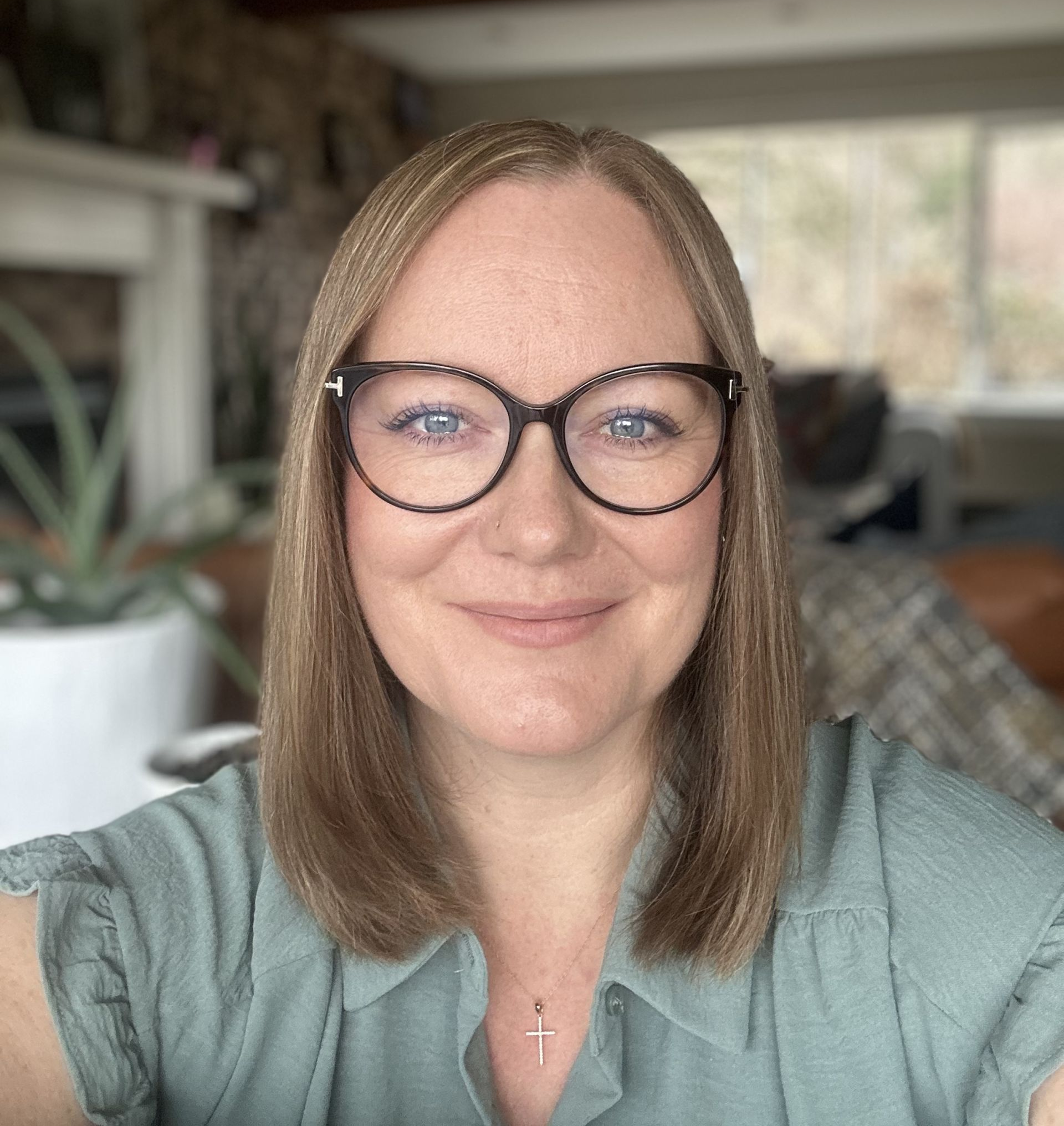Telling A Different Story
Jun 23
/
Caran Jantzen

People are hardwired to tell stories. While some are more gifted storytellers than others, we all tell stories of love, pain, tragedy and triumph. Sometimes stories morph into legends, such as the story about the monster fish dad caught at the lake, or how grandma had to walk to school uphill both ways.
When my kids were younger, we’d take turns at the dinner table, each sharing stories about a “high” and “low” event from our day. Lately, we’ve spent a lot of time reflecting on memories as a family. Our kids have reached notable milestones this year – turning twenty, graduating from high school, beginning high school, and becoming a teenager – which have prompted me and my husband to reflect on our own stories from these stages and ages.
Much like today, the pages of Scripture overflow with stories about God’s presence amid the love, hope, pain and struggle of humanity. In Genesis 3, we read a history-shaping story about Eve that takes place in the garden of Eden. In this story, the crafty serpent, Satan, approaches Eve and challenges her, asking, Did God really say that you couldn’t eat from any of the trees?
Eve knew the story. She and Adam could eat from all but one tree – don't eat the fruit from the tree at the center of the garden, or you will die. Satan wanted to tell a different story: the forbidden fruit doesn’t cause death, but rather, you become like God, knowing good and evil.
How we tell our stories matters. Maybe you’ve told stories about yourself and God such as:
The ancient serpent Satan still whispers in our ears, saying, Did God really say that? Is God really kind, just, loving, forgiving, and compassionate? Or are you just trying to avoid the consequences of your actions?
At other times, it is God who challenges us with these words: Did I really say that? Did I really say that you are unlovable, deserving of pain, a terrible person, unforgivable?
Midlife has been a season of evaluating the stories I tell. Over the last several years, I’ve spent a lot of time reflecting on my stories with my spiritual director, my counsellor, through journaling and prayer, and on walks with patient friends.
Through vulnerability, curiosity, confusion and tears, I am learning to tell a more honest story as I revisit questions such as: Who is God? How does God see me? Who am I compared to who I want to be? How does my childhood continue to shape me?
Learning to retell my stories has been a gift from God. While this has affected many parts of my life, here are several ways that retelling my stories has affected the way I relate to God:
As you reflect on your own stories, have you considered whether it is the serpent or God asking you: Did God really say that? What might happen if you chose to tell a different story?
When my kids were younger, we’d take turns at the dinner table, each sharing stories about a “high” and “low” event from our day. Lately, we’ve spent a lot of time reflecting on memories as a family. Our kids have reached notable milestones this year – turning twenty, graduating from high school, beginning high school, and becoming a teenager – which have prompted me and my husband to reflect on our own stories from these stages and ages.
Much like today, the pages of Scripture overflow with stories about God’s presence amid the love, hope, pain and struggle of humanity. In Genesis 3, we read a history-shaping story about Eve that takes place in the garden of Eden. In this story, the crafty serpent, Satan, approaches Eve and challenges her, asking, Did God really say that you couldn’t eat from any of the trees?
Eve knew the story. She and Adam could eat from all but one tree – don't eat the fruit from the tree at the center of the garden, or you will die. Satan wanted to tell a different story: the forbidden fruit doesn’t cause death, but rather, you become like God, knowing good and evil.
How we tell our stories matters. Maybe you’ve told stories about yourself and God such as:
- God is love, but God doesn’t love me because God let my mom die when I was a kid.
- God could have stopped the car accident from happening, but God didn’t. I deserved it.
- God forgives, but I don’t think God can forgive me because I’m a terrible person.
- My husband left me because God is punishing me for the lifestyle I used to live.
The ancient serpent Satan still whispers in our ears, saying, Did God really say that? Is God really kind, just, loving, forgiving, and compassionate? Or are you just trying to avoid the consequences of your actions?
At other times, it is God who challenges us with these words: Did I really say that? Did I really say that you are unlovable, deserving of pain, a terrible person, unforgivable?
Midlife has been a season of evaluating the stories I tell. Over the last several years, I’ve spent a lot of time reflecting on my stories with my spiritual director, my counsellor, through journaling and prayer, and on walks with patient friends.
Through vulnerability, curiosity, confusion and tears, I am learning to tell a more honest story as I revisit questions such as: Who is God? How does God see me? Who am I compared to who I want to be? How does my childhood continue to shape me?
Learning to retell my stories has been a gift from God. While this has affected many parts of my life, here are several ways that retelling my stories has affected the way I relate to God:
- Past feelings of being unlovable have been replaced with knowing I am God’s beloved.
- The belief that God only loves me when I’m productive has been replaced with knowing that Christ offers rest for my body and soul.
- The belief that I can only rely on myself has been replaced with knowing that God shelters and comforts me like a hen shelters and comforts her chicks under her wing.
As you reflect on your own stories, have you considered whether it is the serpent or God asking you: Did God really say that? What might happen if you chose to tell a different story?

Caran Jantzen
Caran is a transformational coach who works from the belief that the triune God desires our shalom wholeness. She finds joy in supporting individuals and small groups as they discover God’s loving presence in their everyday lives. Caran also serves as a lay leader in her Mennonite Brethren faith community.
Caran, her husband, and their four kids live on the Southwestern coast of British Columbia. She has a deep appreciation for the beauty of the rugged mountains and coastlines nearby. In her spare time, she can be found daydreaming in her garden, practicing her amateur photography skills, walking with friends or curled up with her cat and a book.
Caran is a certified Transformational Life Coach through Western Seminary. She is currently working on her MA in Spiritual Formation and her Spiritual Direction certification from Portland Seminary.
Caran is a transformational coach who works from the belief that the triune God desires our shalom wholeness. She finds joy in supporting individuals and small groups as they discover God’s loving presence in their everyday lives. Caran also serves as a lay leader in her Mennonite Brethren faith community.
Caran, her husband, and their four kids live on the Southwestern coast of British Columbia. She has a deep appreciation for the beauty of the rugged mountains and coastlines nearby. In her spare time, she can be found daydreaming in her garden, practicing her amateur photography skills, walking with friends or curled up with her cat and a book.
Caran is a certified Transformational Life Coach through Western Seminary. She is currently working on her MA in Spiritual Formation and her Spiritual Direction certification from Portland Seminary.

